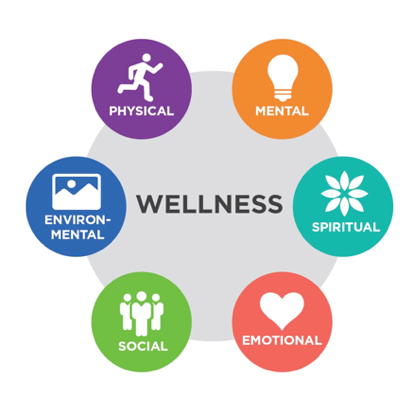Health and wellness are crucial components of a student's life. College students are often juggling multiple responsibilities such as studying, working part-time, participating in extracurricular activities, and socializing with friends. With so much on their plate, it's easy for students to neglect their health and well-being. However, prioritizing health and wellness is essential for students to succeed academically and personally.
Physical Health
Maintaining good physical health is important for students. Regular exercise not only keeps the body fit but also helps reduce stress and anxiety. According to the American Heart Association, 150 minutes of moderate exercise per week can improve cardiovascular health, reduce stress, and improve cognitive function. Physical activity can also help improve sleep quality, which is essential for students to perform well academically.
Nutrition
Eating a healthy, balanced diet is important for students to maintain their energy levels throughout the day. Eating too much processed and fast food can lead to health problems such as obesity, diabetes, and heart disease. On the other hand, a diet rich in fruits, vegetables, and lean protein can help students feel more energized and alert.
Mental Health
Good mental health is just as important as physical health. According to the American Psychological Association, anxiety and depression are two of the most common mental health concerns among college students. Stressful academic workloads, financial concerns, and social pressures can all contribute to mental health problems. Students should prioritize their mental health by seeking support from friends, family, or counseling services if needed.
Sleep
Getting enough sleep is crucial for students to perform well academically. Lack of sleep can lead to difficulty concentrating, memory problems, and decreased cognitive function. The National Sleep Foundation recommends that adults get between 7-9 hours of sleep per night. Developing a consistent sleep schedule, avoiding caffeine before bedtime, and creating a comfortable sleep environment can all help improve sleep quality.
Self-Care
Self-care is an important aspect of overall wellness. Students should make time for activities that bring them joy and help them relax. This could include hobbies such as reading, painting, or listening to music. Taking breaks throughout the day to stretch, meditate, or take a walk can also help reduce stress and improve mental clarity.
In conclusion, health and wellness are essential for students to succeed academically and personally. Prioritizing physical health, nutrition, mental health, sleep, and self-care can all help students maintain a healthy and balanced lifestyle. By making small changes to their daily routine, students can improve their overall well-being and achieve their academic and personal goals.








